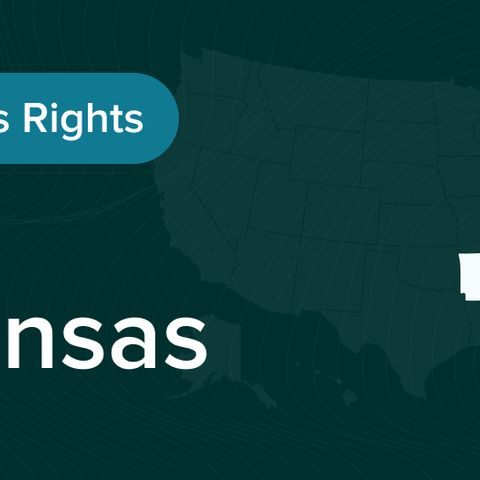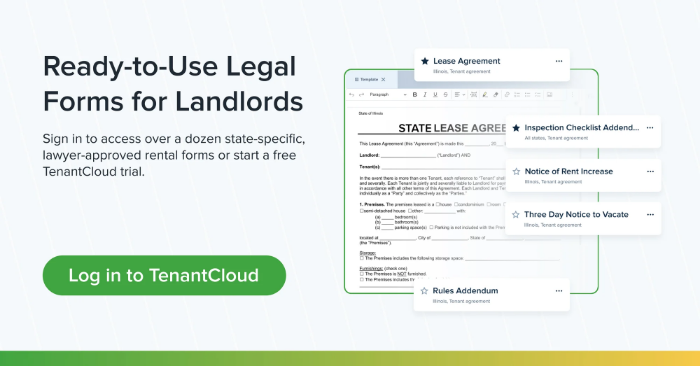
In recent years, issues relating to squatters rights have become a hot topic across the United States, with roughly 4.4m squatters now living in homes across the country. Any home or property owner could be susceptible to this issue, which is why it's important to understand Arkansas squatters rights laws if you own property in the “Natural State.”
So, what is squatting exactly? To be straightforward, it’s when a vacant property is occupied by someone without the permission of the legal owner. But you can just evict a squatter and take your land back at any time, right? Unfortunately, it’s often not as simple as that, and legal pathways exist specifically through what’s known as adverse possession that could allow the squatter to eventually get legal ownership of the property.
The good news is that it’s not an automatic process, and it’s certainly not an easy win for the squatter. Keep in mind that the balance is tipped even more in your favor when you understand and can navigate Arkansas law correctly. As a property owner, you deserve to be informed and have everything you need to protect your property. That's what we'll go over in this article.
By reading on, you’ll find out what your property rights are so that you can avoid unnecessary legal action or issues down the road. We’ll cover everything you need to know so that you can handle any squatter situation with confidence.
What Are the Rights of Squatters in Arkansas?
According to Arkansas squatters rights law, squatters aren’t automatically granted any special legal protection simply because they’ve occupied a vacant property. The problem is, however, if a squatter meets certain conditions over a long enough period, they might be able to file an adverse possession claim to gain legal ownership of the property.
For a squatter to make a successful claim in Arkansas, they must demonstrate actual possession that meets the following:
- open (obvious)
- notorious (widely known or easily discoverable)
- exclusive (not shared with others)
- hostile (without the owner's permission)
- continuous (uninterrupted over a period of time) usually at least seven years
That means simply living in a home without permission is not enough, as the property owner must be visibly excluded, and the squatter must treat the property as if it were their own without the owner's permission.
No Adverse Possession Case - No Authorized Occupancy
It’s important to understand that until a squatter successfully files and wins an adverse possession case, they are deemed to be an unauthorized occupant under Arkansas law. This means a landlord can begin eviction proceedings at any time to remove them. Still, the longer a squatter stays in place without being challenged, the stronger their case can become under state law.
Pro Tip: Always document property inspections with photos and dated notes, as strong records can help stop an adverse possession claim before it’s ever allowed to gain traction.
Related: Arkansas Evictions | Laws and Protections
What Protections Do Squatters Have in Arkansas?
The truth is that under Arkansas law, there’s no protection offered to squatters - unless they’re able to successfully claim adverse possession. Even if they’ve spent years in the property, they may not have a leg to stand on. Here’s what you need to know:
- No protections apply until a court rules in the squatter’s favor. So, simply living on the property, for any length of time, does not constitute a legal right to be there.
- Courts require strong proof to even consider an adverse possession claim, which, in addition to the criteria mentioned earlier, might also require that the squatter maintains the property and pays the associated taxes.
- Improvements have no bearing on ownership, which means that mowing the lawn or fixing a fence isn’t enough to gain legal standing. Things like this only matter when all other statutory conditions are met.
- Most claims fail for a variety of reasons. It could be because of shared occupancy, gaps in the time the squatter has lived there, or prompt action taken by the landlord.
- Legal eviction is always an option until a successful claim is filed and won. As we’ve covered, the squatter is still considered an unauthorized occupant until that point.
Pro Tip: If a squatter tries to claim tenant rights, their biggest vulnerability is usually exclusive possession. Even brief or informal sharing of the space with others can collapse their entire case.
How Property Owners Can Protect Themselves
When you’re faced with a squatter situation, it can feel more than a little overwhelming, but the news is that Arkansas property owners have a number of tools they can use to protect their real estate portfolio. Also, when you act early, you have a much better chance of preventing squatters from gaining a foothold and making an adverse possession claim.
Here are just a few of the things you can do to safeguard your property:
Regular Inspections: When you visit your vacant property on a regular basis, it provides a visible deterrent to squatters. Often, this is enough on its own.
- Post Clear Signage: By putting up "No Trespassing" signs, you strengthen your hand from a legal perspective should law enforcement be required to support you at any time.
- Secure the Property: You need to make access as difficult as possible, which means locking doors, boarding up windows, and maintaining your fencing.
- Use Property Management Services: A good property management company can take care of the day-to-day running of your rental unit, something that drastically reduces the risk of an unauthorized occupant being found inside.
- Document Everything: Keep a record of every visit you make to the property and any encounters you have with any unauthorized individuals. These details are critical if legal action becomes necessary further down the line.
Pro Tip: If the squatter provides a name or poses as a former tenant, check for eviction records tied to that identity. It could reveal similar behavior and help you better protect your other properties.
Related: Louisiana Evictions | Laws and Protections
What to Do if You Discover a Squatter on Your Property
Even when you take every possible precaution, you’re never 100% immune from someone entering your property without your permission. So, what path should you take when you find yourself in this position? Well, the best piece of advice we can give you is to stay calm and follow Arkansas squatters rights law.
That begins with the gathering of evidence. You should take photos, note the time and date, and document any signs of occupation, such as finding personal belongings or discovering changes made to the property. Recording everything could be a real game-changer if a legal dispute were to arise.
Your next job is to issue a formal written notice that the occupant is trespassing and must leave. Ideally, you’ll be delivering this in person or via certified mail, and keep a copy. If they refuse to leave, you’ll need to begin official eviction proceedings through the local court.
Avoid Direct Confrontation if You Can
Throughout this process, you should do everything you can to avoid direct confrontation. The legal system exists for a reason, so let it do the work, especially if the squatter tries to claim tenant rights or files a counterclaim under adverse possession. The burden really is on them to prove their right to become a legal tenant, but if you’re sloppy in handling the problem, it will harm your defense.
Pro Tip: Hiring a local attorney with experience in Arkansas squatters rights law can speed things up and help you avoid mistakes that result in delays in the eviction.
FAQs About Arkansas Squatters Rights Law
Q - Can a family member become a squatter in Arkansas?
A - Yes. If a relative stays on your real property without a formal lease agreement or, indeed, your permission, and meets adverse possession criteria, they could eventually claim rights. You see, family relationships don't override property laws.
Q - Does the squatter paying for the utilities strengthen their claim?
A - It can. Paying for utilities like water, gas, or electricity helps to demonstrate actual possession and intent to treat the property as your own. However, that alone is not enough by itself, as all elements of adverse possession must still be met.
Q - How long can an eviction take if a squatter refuses to leave?
A - Under Arkansas law, the eviction process can move fairly quickly if the correct steps are taken, but delays happen if the squatter challenges the eviction or files a counterclaim. When you take legal action early, it greatly improves your chances of a swift resolution.
Q - Can a squatter claim your property if they only stay during certain seasons?
A - No. Continuous possession means using the property without a break. If they’re living on the property part-time, this usually disqualifies someone from making a valid adverse possession claim in Arkansas.
Q - Is there a difference between squatting and trespassing?
A - Yes, there is. Trespassing is a criminal offense involving short-term unlawful entry, while squatting can lead to civil disputes over property ownership if the occupation is long-term and meets certain legal criteria.
Related: Missouri Evictions | Laws and Protections
TenantCloud – Taking Control of Your Property, Not Just Your Paperwork
When you understand Arkansas squatters rights law, you are far more likely to avoid a long and drawn-out process if and when you discover someone living in your property without your permission. Also, by proactively monitoring and dissuading possible squatters, you do much to stop the problem at source and protect yourself from a legal standpoint.
Dealing with squatters is just one piece of the puzzle when it comes to protecting your rental investments. Whether talking about managing lease agreements or running background checks, every landlord needs a reliable system that simplifies operations without cutting corners.
TenantCloud is purpose-built to deliver this and more. Whether you're a residential landlord or a commercial property manager, our platform brings everything together in one secure, cloud-based hub. No more paperwork scattered across spreadsheets or inboxes — just smarter tools for smarter property decisions.
So, if you're ready to take the legwork out of managing your property, visit the TenantCloud website today. There you’ll find everything you need to know. Alternatively, call 1-737-300-9331 to talk with a member of our team about how we can help you run your rentals more efficiently.





